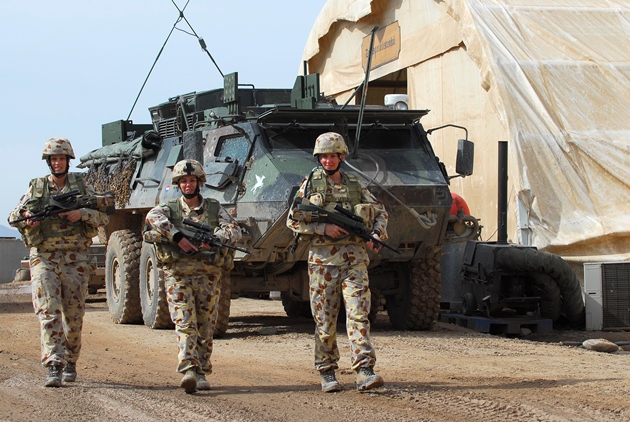NATO and its partners are taking action to support implementation of United Nations Security Council Resolution (UNSCR) 1325, which was adopted in October 2000. UNSCR 1325 recognises the disproportionate impact that war and conflicts have on women and children, and highlights the fact that women have been historically left out of peace processes and stabilisation efforts.
They call for full and equal participation of women at all levels in issues ranging from early conflict prevention to post-conflict reconstruction, peace and security. UNSCR 1325 was later followed by six additional Resolutions. Together, they frame the women, peace and security agenda.
According to the United Nations, before the Second World War, 90 per cent of casualties in conflicts were combatants. Today, 90 per cent of casualties are civilians of whom the majority are women and children. Widespread sexual and gender-based violence in conflict situations, the lack of institutional arrangements to protect women and continued under-representation of women in peace-processes remain major impediments to building sustainable peace.
NATO Allies working with their partners in the Euro-Atlantic Partnership Council (EAPC) responded to UNSCR 1325 by adopting an overarching policy in 2007. The policy is reviewed every two years.
In August 2012, following an offer made by the Norwegian government, NATO’s Secretary General appointed a Special Representative for Women, Peace and Security at NATO Headquarters in Brussels.
NATO cooperates with partner countries and with other international organisations on women, peace and security issues. Work with partner countries focuses on the enhancement of political dialogue and on practical cooperation in the security and defence fields. To this end – in the context of their various partnership programmes with NATO – partner nations are encouraged to adopt specific goals related to UNSCR 1325 and related Resolutions, and to make use of the training and education activities developed by Allied Command Transformation and by individual NATO Allies. Women, peace and security issues are also regularly raised during staff talks between NATO and the United Nations, the Organization for Security and Co-operation in Europe and the European Union.
The Alliance is actively implementing UNSCR 1325 and related Resolutions in its operations. In Afghanistan, Kosovo and at Allied Command Operations, gender advisers are now in place. Recently, Gender Focal Points were appointed within Liaison Monitoring Teams in Kosovo to help develop a gender perspective in outreach activities. Along with having more female personnel on the ground, these measures have had a positive effect on the implementation of UNSCR 1325 in theatres of operations.
Particularly in Afghanistan, female soldiers are able to connect with members of the population otherwise closed off from their male colleagues. This has led to a better understanding of the needs of Afghan women as well as fresh information on insurgent activity and the positioning of improvised explosive devices, allowing patrols to be redirected.
Gender advisers have also been very active in supporting the implementation of UNSCR 1325 and related Resolutions by promoting the senior leader engagement, public outreach events and conferences in Afghanistan.
In addition they have ensured that the gender perspective has been incorporated in operational planning documents throughout the chain of command. These documents outline how a gender perspective, which includes both men and women, must be implemented as part of the overall campaign, and that – given the historical and cultural position of Afghan women – women’s perspectives must be specifically addressed in all ISAF operations.
Efforts continue to be made to ensure that the gender perspective is included in documents outlining NATO’s current and future partnership with Afghanistan and that the commitments made by Afghanistan in terms of respecting human rights – in particular the rights of women as enshrined in the Afghan constitution – continue to receive due attention.




